North Korea's military is getting more than weapons testing can offer by letting Russia fire its missiles at Ukraine
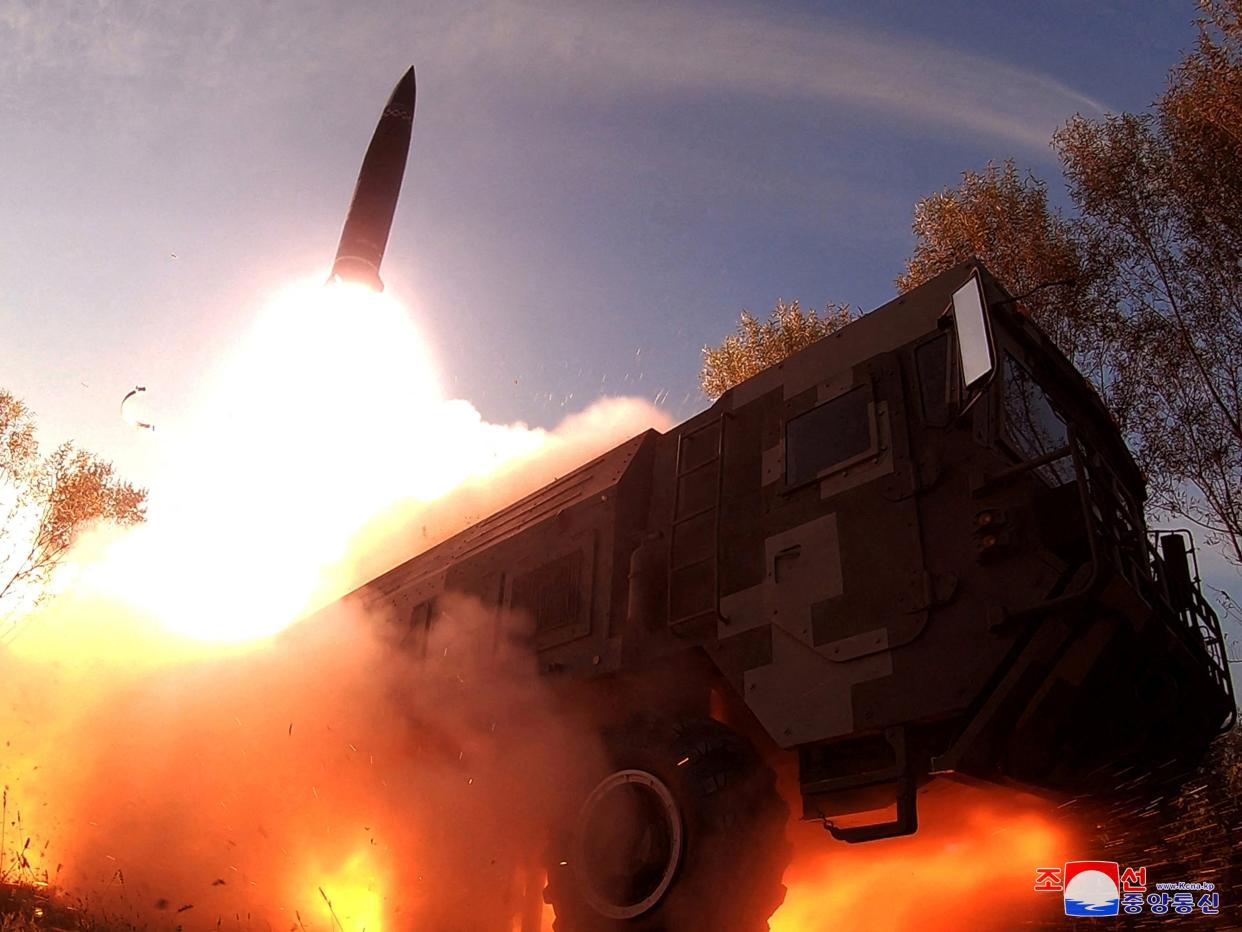
North Korea is gathering invaluable data by letting Russia use its missiles and ammo in Ukraine.
A South Korean official warned Ukraine has become a "test site" for North Korea's missiles.
Both Putin and Kim stand to gain considerably from closer Russian-North Korean relations.
The front lines in Ukraine, bloody and bruised from one two years of brutal full-scale war, are proving opportunistic for North Korea.
Through its arms deal with Russia, the so-called "Hermit Kingdom" is able to collect useful data on the performance of its artillery ammunition, rockets, and ballistic missiles. Ukraine's emergence as a "test site" for North Korean weapons, as a South Korean official described it, marks the first clearly visible benefits of closer Russian-North Korean relations.
At a Monday event at the Center for Strategic and International Studies, US State Department Deputy Assistant Secretary Dr. Jung H. Pak talked about relations between Russia and North Korea, highlighting what the latter has to gain from sending weapons to Russia for its forces to use in Ukraine.
North Korean ballistic missiles, she said, "are killing Ukrainian people, destroying Ukrainian lives, and certainly this is an abhorrent violation of UN Security Council resolutions."
She said that she can't help but think "about what this does for Kim Jong Un and for North Korea that you have a permanent member of the UN Security Council buying arms and using North Korea's banned ballistic missiles against a country."
Pak said it seemed as if Russia was blatantly disregarding nonproliferation norms and noted that "North Korea certainly is not doing this for free."
"They're almost certainly looking for things like fighter aircraft, surface-to-air missiles, ballistic missile technologies, and other technologies or armored vehicles," she said, adding that there was a lot Russia could provide. There are many ways North Korea could benefit from this arrangement.
All of the developments being seen amount to a "pretty fraught moment," Pak said, "in terms of nonproliferation, what it means for actual war fighting, and what North Korea might be learning about its weapons systems because Russia is actually using it on the battlefield."
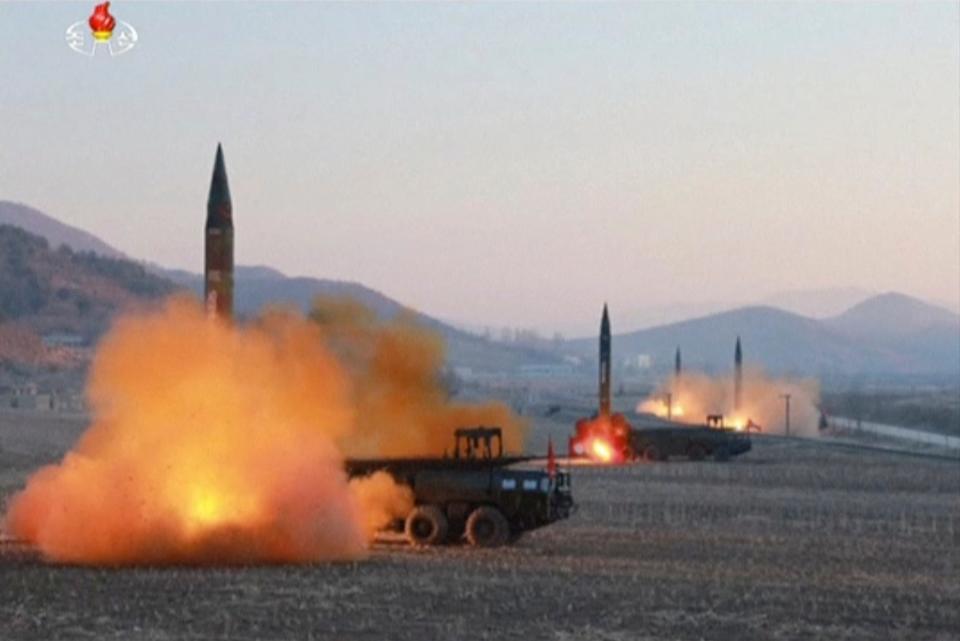
Earlier this year, the US accused the Russians of using short-range ballistic missiles provided by North Korea in multiple strikes in Ukraine late last year, citing declassified intelligence. South Korea had previously reported in November 2023 that North Korea had likely delivered SRBMs and launchers, along with other munitions and artillery as part of a larger arms deal.
While both Russia and North Korea have denied the existence of any such deal, Russian President Vladimir Putin and North Korean leader Kim Jong Un held a high-profile meeting last September to discuss closer military cooperation between the two states, specifically so that Russia could get North Korean weapons in order to replenish its then dwindling ammo stockpiles.
In return, it was suspected that North Korea might request the various technologies and educated personnel it needs for advanced weapons programs, US officials said at the time, including capabilities for its air force and nuclear weapons.
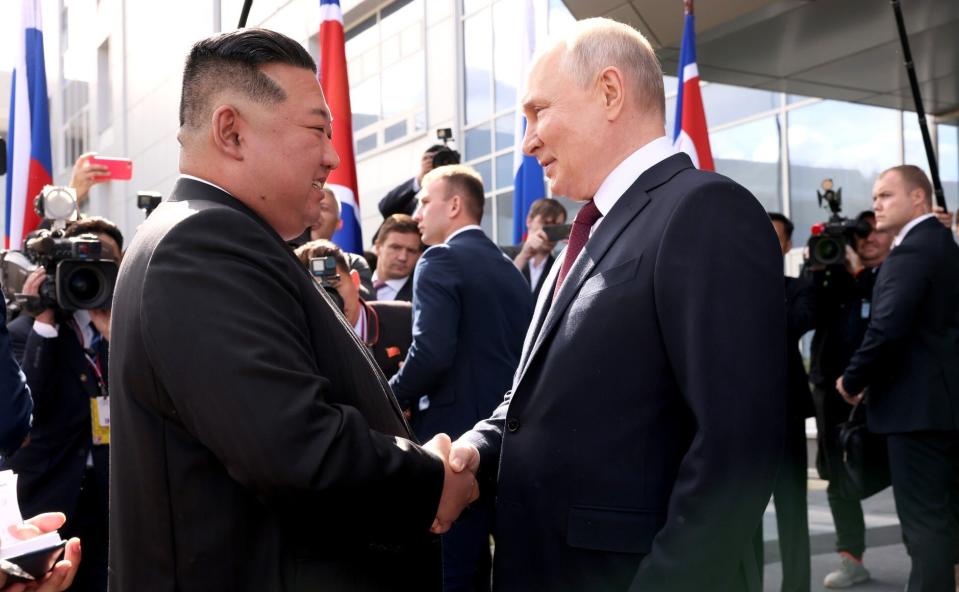
But Putin and Kim's meeting left vague uncertainties about just how far cooperation between the two could go. Was Russia that desperate for ammo that it would be willing to assist North Korea with its military wish list? It was hard to know.
Then, in October 2023, the White House tracked what it identified as more than 1,000 containers of equipment and ammo sent from North Korea to Russia. A month later, South Korea said there'd been about 10 such transfers since August.
In total, North Korea is believed to have sent at least a million shells to Russia, beating out the European Union's collective aid to Ukraine since the full-scale invasion in February 2022.
North Korea's arms transfers to Russia, and the reported use of North Korea's ballistic missiles in Ukraine, arose during a January 2024 United Nations Security Council meeting.
The US and its allies condemned Russia for violating UN resolutions on North Korea. Russia didn't explicitly deny it had fired North Korean missiles, but it did call out "anti-Russian propaganda," saying there had been evidence that the use of such missiles was misinformation.
Deputy US Ambassador to the UN Robert Wood said that Russia was "flagrantly violating Council resolutions to attack another UN member state," and he added that its arms deal with North Korea was "undermining the global nonproliferation regime."
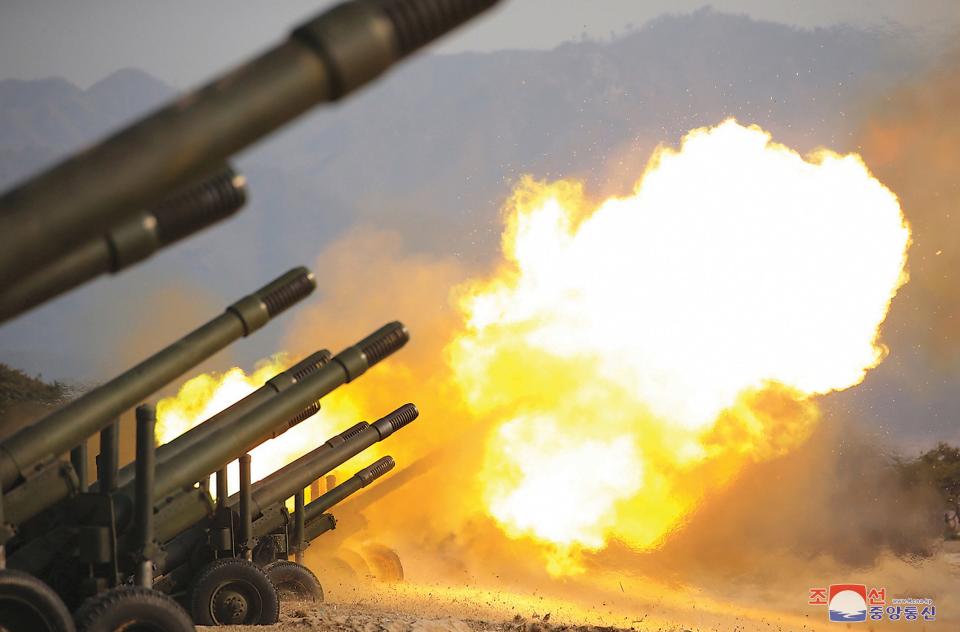
South Korea's ambassador to the UN, Hwang Joon-kook, said the consequences of such an arms deal went a step further than just closer cooperation between Russia and North Korea, saying North Korea is gaining "valuable technical and military insight" by allowing Russia to use its missiles in Ukraine.
"By exporting missiles to Russia, the DPRK uses Ukraine as the test site of its nuclear-capable missiles," he added.
While there are no specific details on which North Korean missiles have been used in Ukraine, experts have assessed Russia has fired KN-23s, which North Korea has claimed can carry nuclear warheads.
"From the ROK [Republic of Korea] standpoint, it amounts to a simulated attack," he said.
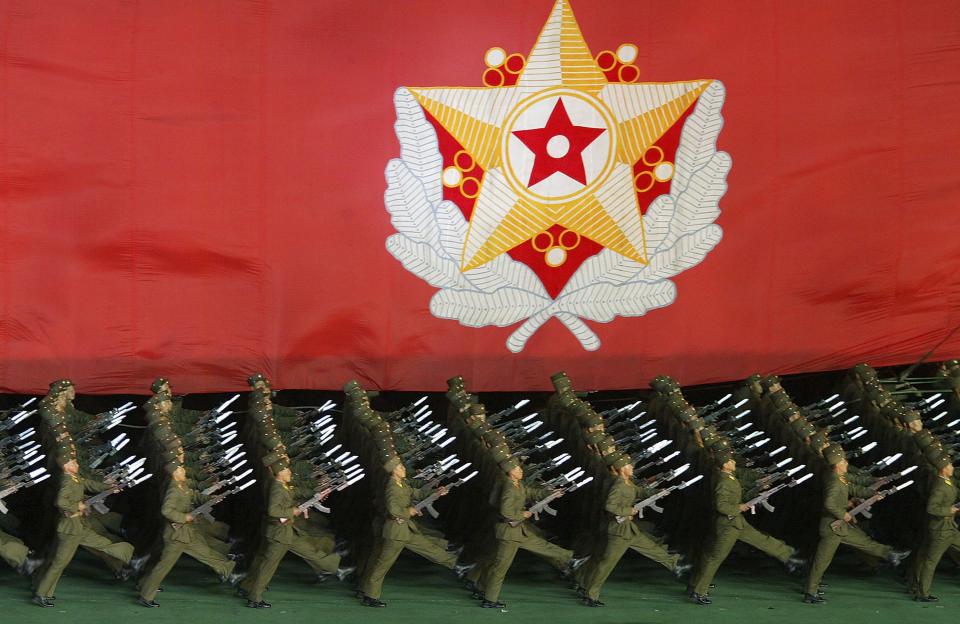
But just because North Korea is getting actual combat data on its missiles in Ukraine doesn't mean it hasn't continued its own testing. Just Monday morning, it launched multiple SRBMs into its eastern waters, South Korea reported. It's the first in over a month but the latest in an increasingly frequent testing schedule. It also came only days after South Korea and the US wrapped major joint military drills.
Those 11-day drills involved computer-simulated training and 48 field exercises, double last year's. Throughout the drill, North Korea conducted its own exercises, projecting strength with various tank, artillery, and paratrooper missions.
North Korea's latest missile test also occurred while US Secretary of State Antony Blinken was visiting Seoul.
Experts have said 2024 is a big year for North Korea on a variety of fronts, as its relationship with Russia and potentially China grows stronger, and the 2024 US presidential election raises the potential for tension in the region.
Read the original article on Business Insider


